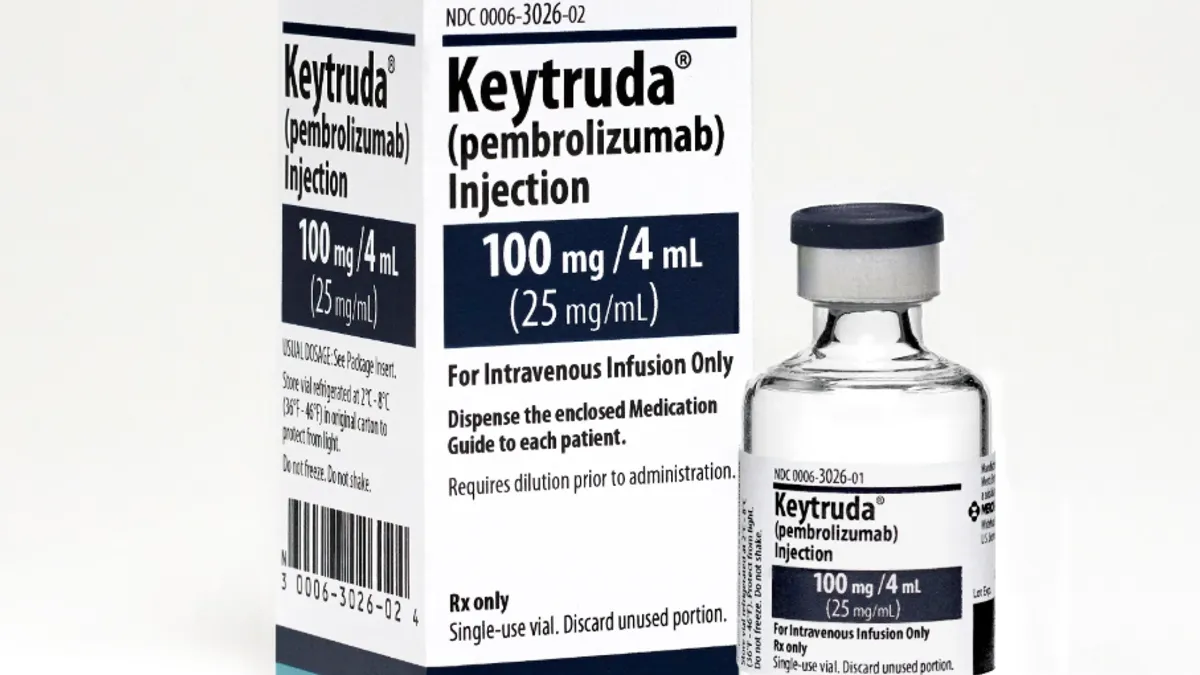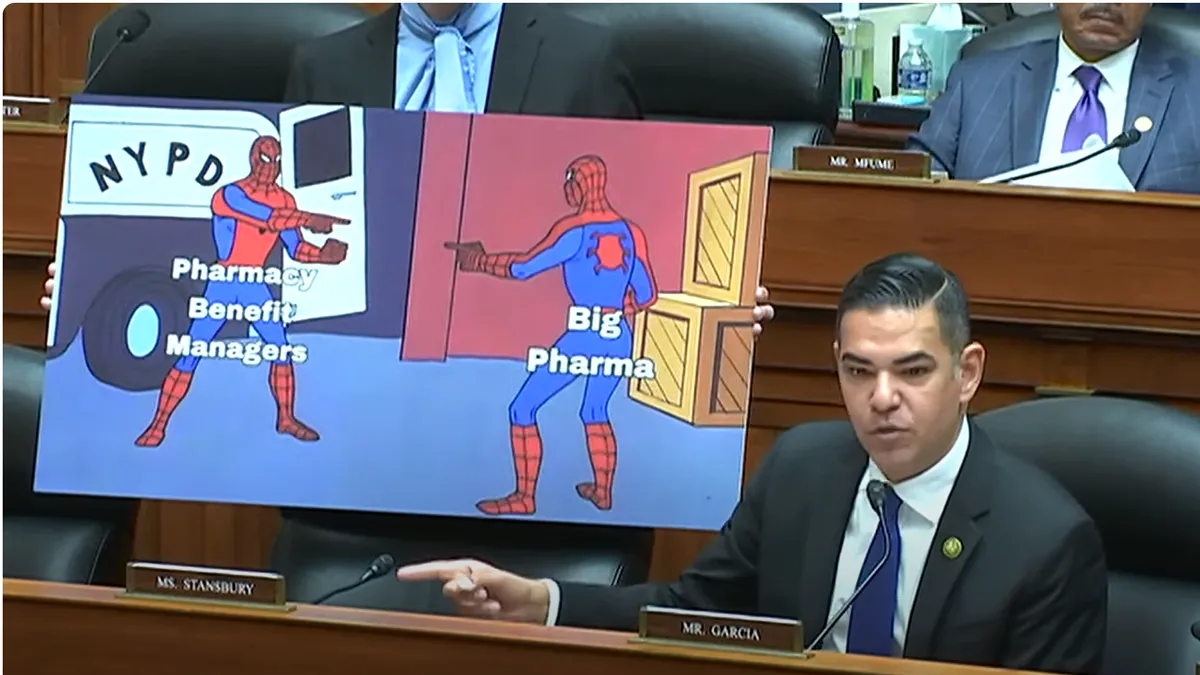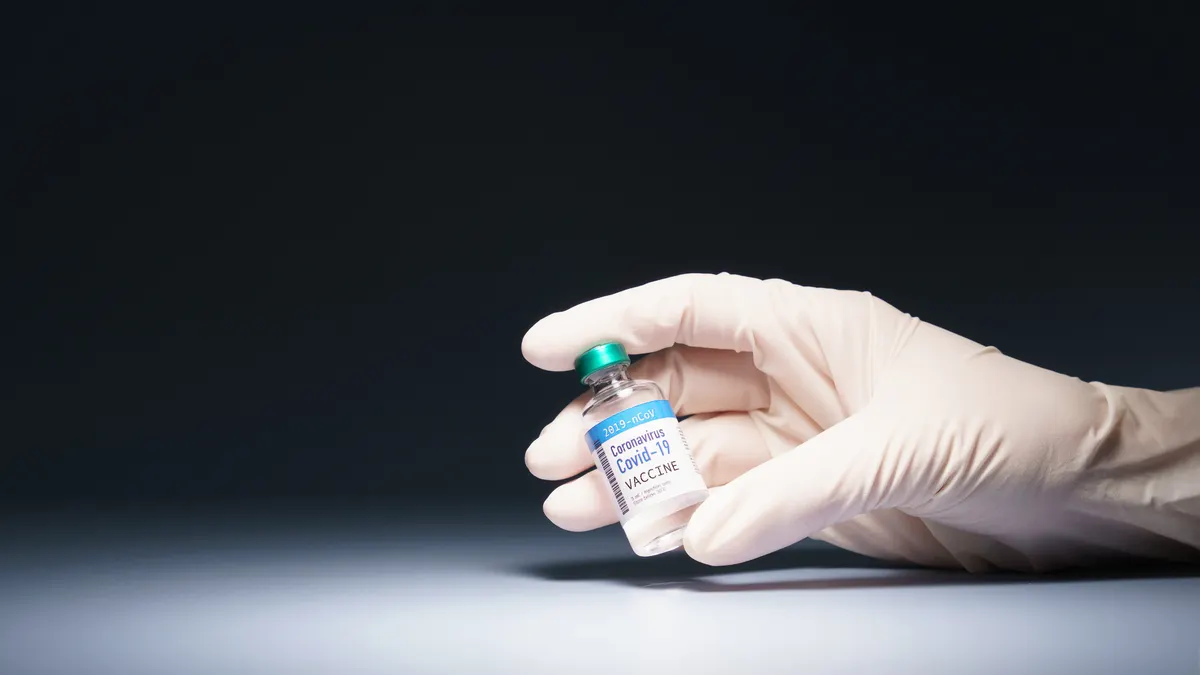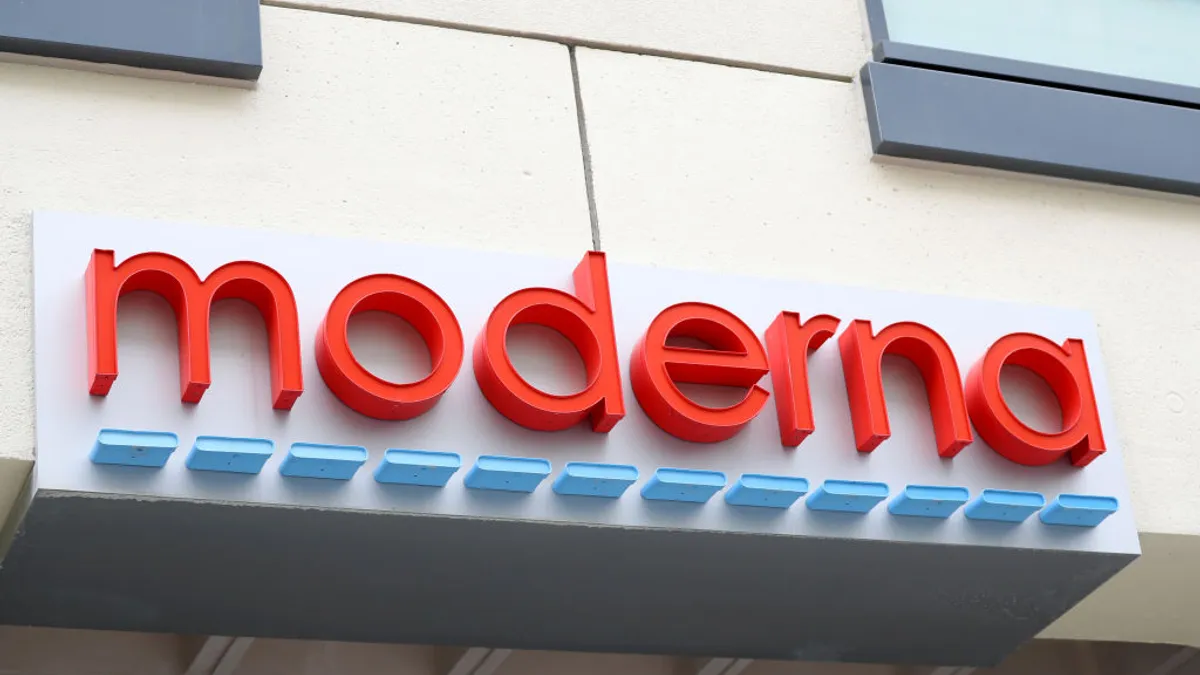When a bispecific antibody drug beat Keytruda in a Chinese lung cancer trial last year, excitement around the drug category skyrocketed, fueled by the tantalizing prospect of a newcomer unseating the megablockbuster.
Ivonescimab, which was developed by China-based Akeso and licensed to Summit Therapeutics, targets both PD-1 and vascular endothelial growth factor (VEGF), a protein that promotes blood vessel growth and shields tumors from the immune system. This dual-targeting approach — a hallmark of bispecific drugs — blocks immune evasion using PD-1 and cuts off the tumor’s blood supply, which could pack a stronger cancer-fighting punch than either strategy alone.
While the encouraging results in the Chinese phase 3 trial raised hopes ivonescimab and other drugs in the bispecific category could disrupt Keytruda’s dominance in the oncology market, more recent data from a global trial of ivonescimab dampened that optimism. In the phase 3 study, the drug missed the key benchmark of overall survival. And even if future trials clear that hurdle, matching Keytruda’s staggering success may still prove elusive, said Ethan Smith, therapy area director at Norstella.
“Can it become a $25 billion to $30 billion drug? I think that’s a bit of a fantasy,” he said.
Still, the candidate’s other promising results have highlighted the rising potential of bispecifics to set new standards in cancer care.
A rising drug class
While Summit is leading the pack in bispecific antibody oncology contenders, ivonescimab isn’t the only horse in the race. Among many contenders in the Big Pharma ranks vying for bispecific market share, companies like BioNTech, Merck & Co. and Pfizer boast several of the candidates in clinical development — a smattering compared to the overall space.
BioNTech’s BN327, acquired from Biotheus, differs from ivonescimab by targeting PD-L1 — instead of PD-1 — in addition to VEGF. It’s in multiple phase 2 and phase 3 trials for lung cancer and triple-negative breast cancer, and has shown some favorable data. In June, the company announced it is partnering with Bristol Myers Squibb to test the drug in solid tumors as well.
“For any drug to attain the status to capture all of these patients across so many different tumor types … will be super challenging."

Ethan Smith
Therapy area director, Norstella
Keytruda maker Merck is in early-phase testing with LM-299, which it licensed from LaNova Medicines. The company is looking to shore up its pipeline to compensate for an expected drop in Keytruda sales when a key patent expires in 2028 and the door opens to biosimilar competition.
Pfizer signed a $1.25 billion deal with 3SBio for SSG-707, another PD-1xVEGF that is poised to start phase 3 trials in China.
Signs of promise and setbacks
In the meantime, the industry will be closely watching ivonescimab, the fate of which could become a bellwether for other bispecifics in development.
Most recently, the drug demonstrated positive progression-free survival data in topline results from Summit’s phase 3 global clinical trial released in May.
The results overall, however, were a mixed bag. Despite delaying tumor progression, the drug’s 21% reduction in the risk of death was not considered statistically significant and “didn't translate to overall survival,” Smith said.
The company’s share price dropped 20% on the news, contributing to a murky picture of the drug’s future.
“I think a physician would say this is clearly beneficial for patients. But it’s not something that the FDA will approve unless the final data does become significant, which I think is an outside bet,” Smith said.
The FDA typically requires statistically significant survival data for full approval. Even so, Summit plans to submit an FDA filing, although the timing isn’t clear.
Going forward, all eyes will be on ivonescimab’s performance in the two upcoming trials, Smith said. Both studies pit the drug directly against Keytruda, not a placebo as in the original trial.
“This will help answer the bigger question: Can it replace Keytruda?” Smith said.
Final results from these trials won’t be released until 2027 or 2028, although there will likely be some earlier signals from interim data. However, two factors make it unlikely that the bispecifics can ultimately best Keytruda outside of the clinic. First, the oncology market has become more segmented and personalized.
“For any drug to attain the status to capture all of these patients across so many different tumor types … will be super challenging,” Smith said.
In addition, Summit is a relatively small company and may have difficulty pushing the drug to the dizzying heights experienced by Keytruda. Partnering with another company to gain additional resources could change the outlook, Smith said. And there’s buzz that the company is trying to do just that with AstraZeneca, which has reportedly been in talks with Summit about a deal as high as $15 billion for the bispecific, according to Bloomberg.
But ultimately, even though PD-1 VEGF drugs are likely to earn a place in the oncology market, they probably won’t completely edge out Keytruda at its peak.
“In indications that make sense, like small cell lung cancer, renal cell carcinoma, head and neck cancer, it can [become] a very strong alternative,” Smith said. “That would be easier to do in the U.S., but will be more challenging in Europe, where you've got cost-effectiveness challenges if you've got a marginal benefit with ivonescimab versus a [Keytruda] biosimilar.”
Whether bispecifics or another up-and-coming technology succeeds in the clinic, it’s unlikely any new drug will achieve the same reach as Keytruda, Smith said.
“I don’t think any oncology drug is going to be able to replicate what Keytruda has done,” Smith said.


















